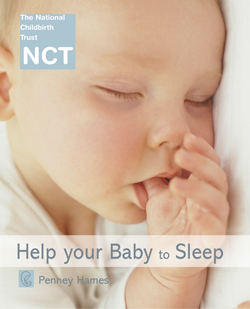Читать книгу Help Your Baby to Sleep - Penney Hames - Страница 36
Sleep Associations
ОглавлениеAs the name suggests, ‘sleep associations’ are the things your baby associates with going to sleep. The fact is that, whatever your baby is used to when he falls asleep in the evening, he may need again to get himself back to sleep if he wakes in the night.
Babies are incredibly adaptable – if you always sheared sheep in your baby’s bedroom whenever you wanted him to sleep, he would still sleep – he would just learn to associate sleep with the sound of bleating and sheep clippers. And you’d have to be ready to fleece another from your flock each time he woke at night. Most parents find that a teddy and a goodnight kiss work just as well.
After the first few months of life, a baby who routinely falls asleep on his own in a room that is fairly dark and quiet will recognize the same conditions when he wakes for the average five times a night – and so be able to return himself to sleep without needing you. Some parents start a routine earlier than others:
‘James and Richard have both slept well from the beginning. I put it down to some advice I had at the start. The first night home with James I didn’t get a bit of sleep, and then there was a knock at the door and it was the midwife. “Stick him on,” she said. “Hmm, he’s just using you as a dummy. Put him down. Go and play some music that you like.” We were a bit hesitant but did as we were told. It was the best advice I’ve ever had. He cried for ten minutes and then went to sleep. The midwife said, “When he’s fed and you know he’s satisfied, put him down.” He slept through the night by the time he was six weeks old. It was the same with Richard.’
Frances and Stuart
On the other hand, a baby who routinely falls asleep in your arms or at your breast will need to find a nipple and someone to hold him at night to do the same. Many parents who prefer this way of saying goodnight to their baby are also happy to share their beds with them, so that they can easily recreate the evening’s sleeping conditions:
‘In the evening I undress Sophie, sometimes she has a shower or a bath and then we lie down in bed, read a story and then she holds my breast and falls asleep. I’ve had her in bed with me since birth. I did the same with Sam and Rosie when they were smaller too.’
Clare, mother of Sam, eight, Rosie, five, and Sophie, two-and-a-half
But if you like your bed to yourself, it’s counterproductive to lull your baby to sleep in the evening with a feed or a cuddle – because you’ll probably spend a lot of the night in his bedroom doing the same thing again. If you want to spend your nights in your own bed with only adult company, sooner or later you’ll have to get your baby to go into his cot awake and alone in the evening.
Sleep associations can take a while to learn. Especially in the early days, it may be difficult to identify a strategy that works. Sometimes, putting him in his cot and leaving him to it makes him nod off and at other times he can remain determinedly awake through all 25 verses of ‘Oh my darling, Clementine’. Still, it is worth persisting with a structured bedtime formula that you like because eventually your baby will find the predictability of the formula reassuring and relaxing.
